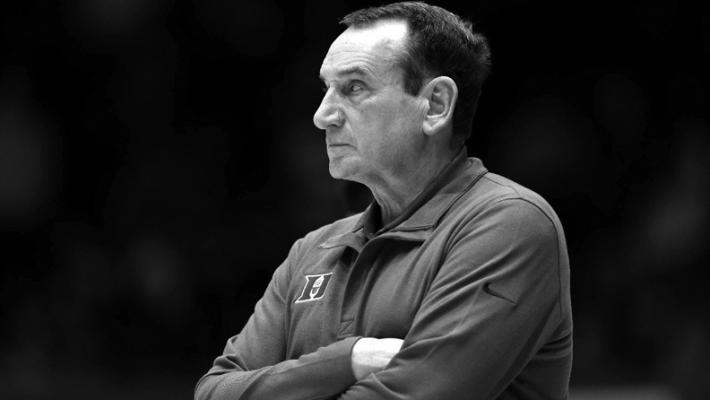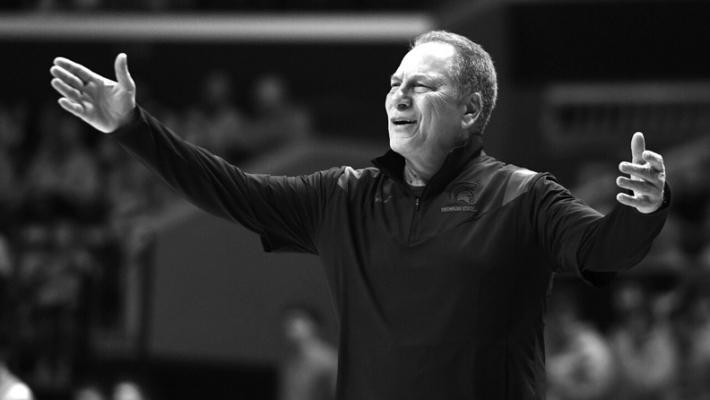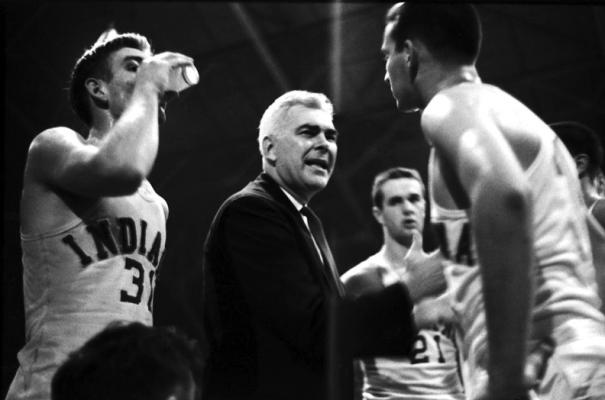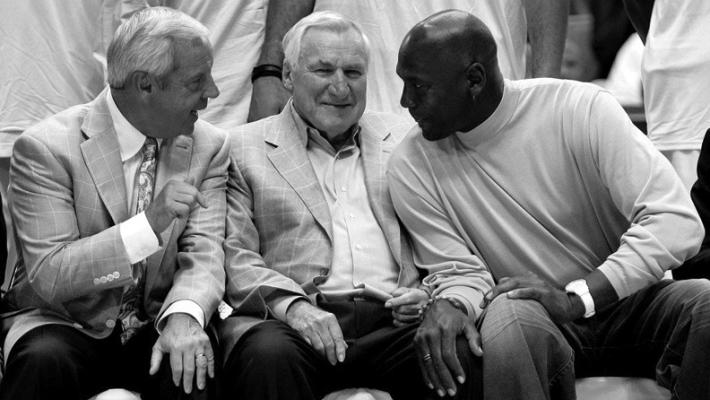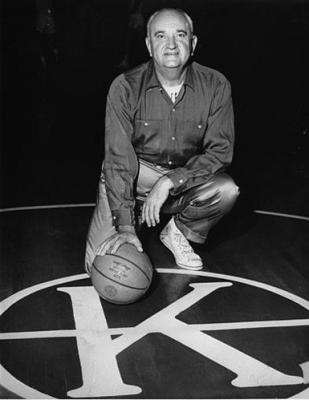Consider the coaches when filling out brackets
The NCAA brackets are set and millions of fans and quasifans have begun the process of making their predictions of which team will emerge as the 2023 national champion.
I still haven’t decided whether I will try my hand at picking the winners of each game in the tournament. In the past two or three years I have given up participating in hopeless causes, not necessarily for Lent, but since the tournament coincides with the sacred season, I suppose I could count it as a sacrifice.
Hopeless it has been for me to fill out the NCAA bracket. Sentimentality gets in the way for me. I pick a team because I like it, or pick against another team because I don’t. I pick teams because they are underdogs and I love underdogs. All in all, my formula doesn’t work very well at all.
For fun, I have made donations to the office pool in the past. My contribution is, just that, a donation, because there is no chance at all that I would ever emerge as a winner. People would come to me asking my advice on who to pick, at times. I would always turn them away. “I don’t want to be responsible for your loss,” would be my sage response.
I did work with a friend once, who usually did quite well with his choices. On one occasion, I asked him what his system for picking winners was and he told me that he usually went with the coaches. Certain coaches are more likely than others to have teams to go deep into the tournament. “Never bet against Coach K (Mike Krzyzewski) of Duke or Roy Williams of North Carolina,” was his response. Right away I saw my problem. Those coaches headed up programs that I didn’t particularly like. It was easy for me to find an underdog that I predicted would knock them off in the early rounds.
In thinking about filling out a bracket this year, I decided to take a look at the coaches who have done the best in previous tournaments. The first place I went was to determine which coaches have taken the most teams to the Final Four.
Krzyzewski leads the pack with 13 Final Four appearances all at Duke, one ahead of John Wooden who took 12 UCLA teams to that level. Dean Smith, who preceded Williams at North Carolina had 11 Final Four appearances and Williams had nine, four at Kansas and five at Carolina. Tom Izzo at Michigan State had eight to his credit and Denny Crum and Adolph Rupp had six. Crum’s were all at Louisville and Rupp’s all were at Kentucky.
Looking at that list, all have either passed on or retired except Izzo and, yes, Michigan State is in the tournament. So, if I were to take my friend’s advice, I would pick the Spartans to win it all. Somehow, I don’t think that is too plausible, so maybe I will just pass on filling out a bracket like I have in the past two or three years.
But starting my research on the winningest coaches got me interested in going one step further. I know that John Wooden with 10 national titles to his credit has won the tournament more than any other coach. Who is next on the list?
The answer is no surprise-Coach K with five titles is in second place. Rupp, of another era all together won four, Williams won three, Jim Calhoun of Connecticut had three as did Bobby Knight of Indiana. Crum had two at Louisville, as did former OKC Thunder coach Billy Donovan at Florida, the legendary Hank Iba of Oklahoma A&M (when he won the tournament), Ed Jucker of Cincinnati, Branch McCracken of Indiana a long time ago, Dean Smith at North Carolina, Phil Woolpert of San Francisco in the Bill Russell era, Jay Wright of Villanova, Rick Pitino at Kentucky and Louisville and Bill Self at Kansas.
I had special thoughts about several of the aforementioned coaches.
Adolph Rupp is one of several notable coaches who came out of the University of Kansas. Rupp was a player for Phog Allen before he went into the coaching business. He was known for not wanting to integrate his Kentucky teams, turning down opportunities to recruit some highly talented black players. It was quite ironic that the 1966 national championship game featured Rupp’s all-white team against an all-black outfit from Texas Western (now UTEP). Kentucky was highly favored, but Texas Western won the game. Enid’s Don Haskins coached Western by the way. One other piece of personal trivia concerning Rupp. After graduating from KU, he started teaching at Burr Oak, Kan., where he coached basketball as well. Burr Oak was the bitter rival of the high school I attended. More irony, Burr Oak and my school, Esbon, merged back in the 1970s.
Roy Williams was the darling of Kansas fans for a while, but he lost all of that favor when he left the Jayhawks to coach at North Carolina. When Larry Brown left KU for the San Antonio Spurs, Williams was hired to replace him. Williams was an assistant at North Carolina and had never had a head coaching job before but he had great success at Kansas. When Dean Smith retired, Williams was offered the North Carolina job and mulled it over for a time. He announced before a large crowd gathered at the Kansas football stadium that he had decided to stay in Kansas and said “I am here forever” or some words to that effect. Several years later he again was offered the North Carolina job and decided then to leave Lawrence, offending the fans who had taken him at his word that he’d never leave.
Speaking of Dean Smith, he was another one of Phog Allen’s kids. Smith was a member of the 1952 Kansas national championship team which included Clyde Lovellette and a few other notable players. In those days, the United States Olympic team was made up largely of members of the NCAA champion and Lovellette and his teammates played in the Helsinki Games. Smith was one of the other members of the Olympic team. His entire coaching career was spent at North Carolina where he had great success.
Henry Iba, or Mr. Iba as he was known to many in this area and around the world, won his two titles in the 1940s. His Oklahoma A&M teams featured one of the earliest 7-foot players to achieve stardom-- Bob Kurland. Iba had many other great teams, but he never again won the NCAA tournament. I remember him for his gravelly voice and gracious manner. I came in contact with those attributes when he brought his Cowboy team to Manhattan, Kan., to play in the 1965 Midwest Regional Tournament, which I covered as a member of the K-State Collegian staff. Iba had granted me an interview the previous year when OSU and K-State played in Manhattan, and he remembered me when I asked for another interview a year later. I was rooting for his team to win and advance to the final four, but Wichita (now Wichita State) won instead.
Branch McCracken was another coach that I remember from my college years. He was the head mentor at his Alma Mater, Indiana, for many years (1938 to 1943) and then after military service during World War II 1946 to 1965. His Indiana team won the NCAA in 1940 when he was 31 making him the youngest coach to win the title. Indiana won again in 1953, beating out Kansas’ bid to win back to back titles. Indiana visited Kansas State in December, 1964, my senior year. K-State had gone to the Final Four a year earlier, and much was expected out of this Wildcat team. It was the second game of the year and Indiana won in a close game. I didn’t have an opportunity to talk to Coach McCracken, but I remember how regal he looked while pacing the sidelines. He was tall and had a healthy shock of white hair. I didn’t know it at the time, but the 1964-65 season would be his last. He died several years later.
By the way, if I do fill out a bracket this year, I’ll never tell who I chose. Unless I pick the winner, of course.

